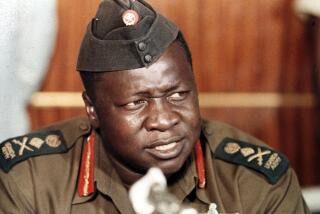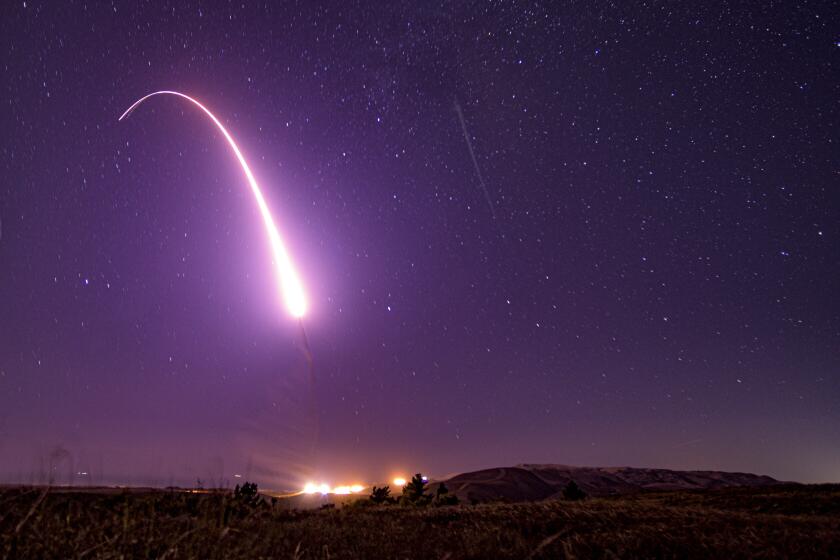K. Banda; Ex-President of Malawi
- Share via
JOHANNESBURG, South Africa — Former Malawi President Kamuzu Banda, an autocrat with a streak of brutality who led the former British colony to statehood, has died. He was believed to be 99.
Banda died of respiratory failure Tuesday night at the Garden City Clinic in Johannesburg, where he had been under intensive care for pneumonia, hospital spokeswoman Amelda Swartz said Wednesday.
Banda, who underwent brain surgery in South Africa in 1993, was hospitalized in Malawi, the former British colony of Nyasaland, and later was transferred to the Johannesburg clinic in a coma.
Banda led Malawi to independence in 1964 and went on to head one of Africa’s most brutal and isolated dictatorships for three decades. He was ousted in 1994 in the country’s first democratic elections.
Malawi is a small impoverished land of 8 million people bordered by Tanzania, Mozambique and Zambia.
During Banda’s rule, thousands of political opponents were killed, tortured, jailed without trial or hounded into exile. He was known for peculiar dictates that banned long hair on men, short skirts on women, television and even the Simon and Garfunkel song “Cecilia” in deference to his companion Cecilia Kadzamira, one of the country’s most powerful figures who held the title of “official hostess.”
The 1994 elections were held only after anti-government riots and an aid freeze by Western donors, who pressured Banda to abandon repressive policies as post-Cold War reforms swept across Africa.
During an eight-month trial in 1995, Banda and Kadzamira, along with top aides, were cleared of the 1983 slayings of four dissident politicians. Because of his frail condition, Banda did not attend the trial.
Banda, known as the Ngwazi, chief of chiefs or conqueror in the local Chewa language, was always seen in public in an austere dark suit, black Homburg hat and waving a lion’s tail fly whisk.
Educated by Scottish missionaries and at Meharry Medical School in Nashville, Tenn., Banda practiced medicine in Scotland. He later decorated his seven palaces at home with a mix of animal skins, tartans and Scottish baronial insignia.
Banda was given a hero’s welcome when he came home in 1958 to campaign for independence. He was jailed for inciting violence against British colonial authorities, but later was freed to negotiate for independence in London.
He was a founder of the early pan-Africanist movement and the Organization of African Unity, but he stayed away from its meetings as his isolation grew. Under Banda, Malawi was the only independent African nation to maintain open, formal ties with apartheid-ruled South Africa and Israel.
More to Read
Sign up for Essential California
The most important California stories and recommendations in your inbox every morning.
You may occasionally receive promotional content from the Los Angeles Times.










